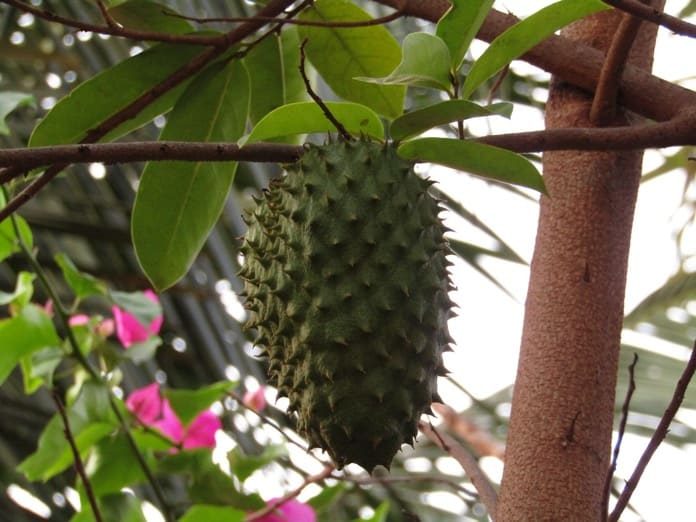A research group in Spain gathered decades of data from past studies to better understand the benefits of a family of tropical fruits that have long been used in traditional medicine.
Tropical fruits such as soursop and custard apple have been used in traditional medicines in the tropical Americas to treat a broad range of ailments. These fruits belong to the family of Annona (Annonaceae). As a new study highlights, many traditional uses of these plants include the treatment of ailments associated with fibromyalgia symptoms.
Fibromyalgia is a debilitating disease that is estimated to affect as much as 6% of the world’s population. It is a disease characterized by chronic, widespread pain, and its cause remains poorly understood. However, since fibromyalgia is so poorly understood, most treatments focus on managing pain rather than a cure. The development of better treatments is crucial to improving the quality of life in these patients. A recent study highlighted the extract from soursop leaves as a new potential source of relief for those suffering from fibromyalgia symptoms.
The lead author, Ana María Quilez from the Medicinal Plants research group at the University of Seville, stated in a recent press release, “the consumption of [an] extract of [soursop] leaves in pharmaceutical form and in the correct dosage can reduce the chronic pain, anxiety and depression that accompany this disease.”
Extracts from leaves, seeds, and the fruit itself have been studied for their medicinal uses and active chemical components. Quílez and colleagues aim to consolidate decades’ worth of findings in their study published in The Journal of Ethnopharmacology. In this study, extracts from the bark, flesh, leaves, and seeds of 27 species of Annona were compared for their therapeutic potential.
The researchers found that four species, in particular, had the most promising pharmacological profiles: A. muricata (soursop), A. squamosa (custard apple), A. senegalensis, and A. cherimola. Some Annona fruits are also reported to have anti-tumor effects. Many of these cancer-related studies also performed in-depth chemical characterizations on crude extracts, which may be vital to the future pharmacological study of these plants.
This review is an invaluable resource for future research in the uses and properties of Annona fruits and their impact on diseases such as fibromyalgia. It also highlights the use of Annona fruit extracts for many other illnesses like cancer, diabetes, and anxiety.
The study of traditional medicines is certainly not a new field. In fact, in the United States, 79% of approved prescription medicines were originally identified in plants. A better understanding of the active compounds in Annona fruits could bridge the gap between traditional and modern medicine, and bring relief to the millions of people living with fibromyalgia. Unfortunately, the majority of studies in this report use crude extracts of this fruit, which limits the ability to make firm conclusions on individual chemical components and their properties.
A variety of noteworthy side effects associated with high levels of consumption of these fruits are another hurdle to getting these compounds to clinical trials. The authors also discuss serious side effects including potential atypical Parkinsonism and brain lesions. However, better characterization of these crude extracts could help to reduce harmful side effects by identifying compounds that are associated with positive effects. Multiple such studies characterizing the chemicals in these extracts were also included. This report lays the groundwork for more defined studies of Annona fruit extracts, hopefully bringing them one step closer to clinical studies.
Written by Stacey Aggarwal, PhD
References:
- A.M. Quílez, M.A. Fernández-Arche, M.D. García-Giménez, R. De la Puerta. “Potential therapeutic applications of the genus Annona: Local and traditional uses and pharmacology.” Journal of Ethnopharmacology 225 (2018) 244–270.
- Ecological Society of America. “Ecosystem Services: Benefits Supplied to Human Societies by Natural Ecosystems.” Issues in Ecology 2. Washington, DC: Ecological Society of America (1997).



